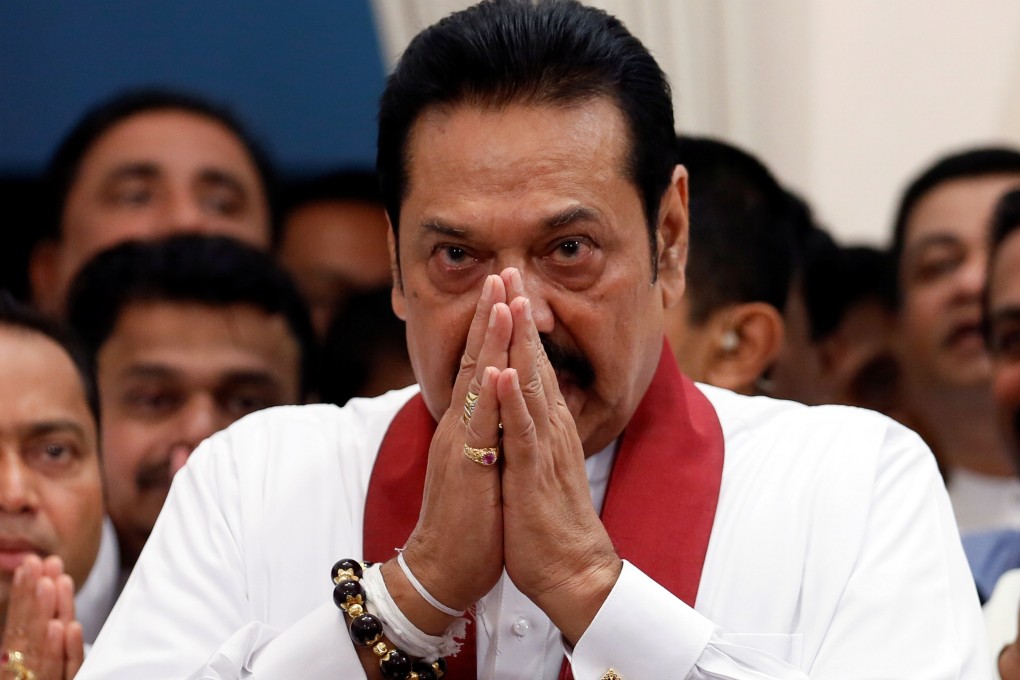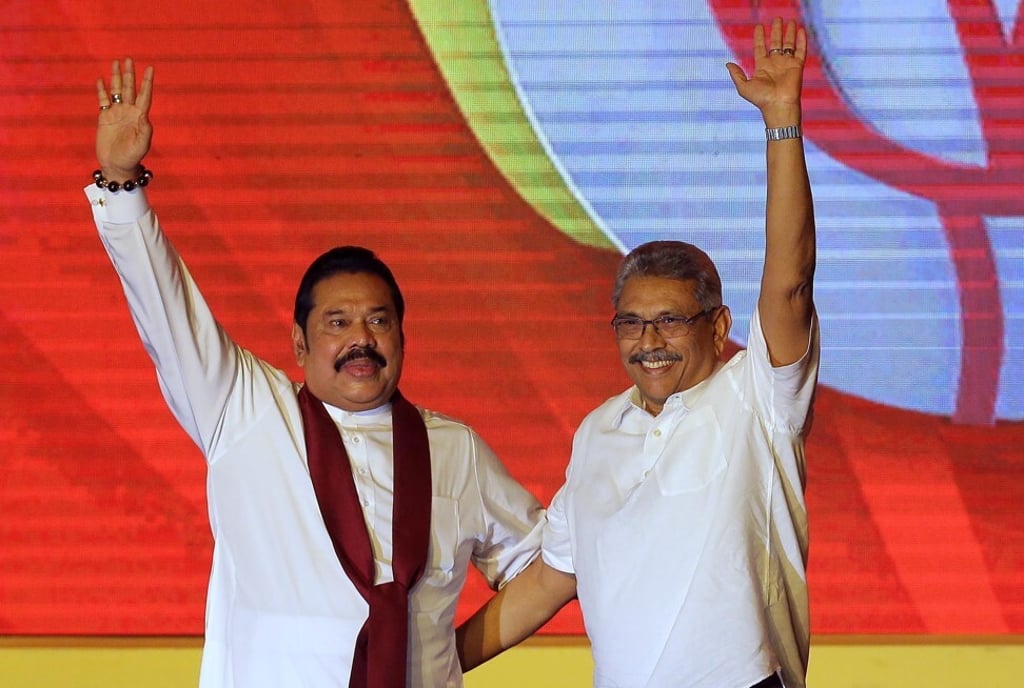Advertisement
Sri Lanka seeks to balance India ties even as China presence grows
- India’s PM Modi is set to meet his Sri Lankan counterpart in a virtual summit to reset ties, which have dipped amid China’s growing presence in the island
- While Colombo has recently been pivoting back to New Delhi, this process is likely to speed up as the pandemic ravages Sri Lanka’s economy, observers say
Reading Time:4 minutes
Why you can trust SCMP

Colombo’s “India First Policy”, a coronavirus economic assistance plan and intelligence-sharing efforts are likely to be on the agenda of a virtual summit between Indian Prime Minister Narendra Modi and newly-elected Sri Lankan counterpart Mahinda Rajapaksa, analysts said.
The meeting on Saturday – which marks the first summit between India and a South Asian neighbour – represents a chance for both sides to “comprehensively review” their “time-tested” friendship, said India’s foreign ministry, at a time China’s presence in the Indian Ocean nation is growing.
Delhi-Colombo relations have soured in recent years, as the island began seeking closer ties with Beijing under Mahinda Rajapaksa’s presidency, during which he accepted several projects under the Chinese Belt and Road Initiative.
Advertisement
While President Gotabaya Rajapaksa and Prime Minister Mahinda Rajapaksa have in the past year signalled a reset to its ties with India, this process is likely to speed up as the coronavirus pandemic ravages Sri Lanka’s economy, observers said.
Advertisement
Last November, Gotabaya Rajapaksa made New Delhi his first bilateral visit after he assumed the position. In February, Mahinda Rajapaksa made a four-day visit to India – a gesture reciprocated by Modi when he became the first foreign leader to congratulate Mahinda Rajapaksa on his re-election as premier in August.
Advertisement
Select Voice
Choose your listening speed
Get through articles 2x faster
1.25x
250 WPM
Slow
Average
Fast
1.25x
